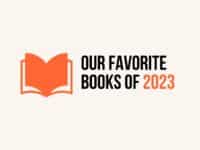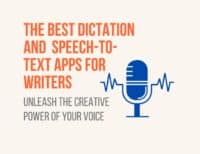Listening to my nearly four-year-old daughter tell a story always teaches me something about writing. Before she starts a story, she knows how she want her story to end (“The purple raccoon and I were up in the tree, having a tea party with the dog!”). Knowing how her story will finish allows her to play and play—fabricating the juiciest details she can imagine until she gets to her ending-point.

How to Start a Story
We cannot start to tell stories about ourselves until we have the clarity that comes with knowing the ending.
Often this is the reason writers get stuck in the middle of a story, not knowing where to go next. We wonder what the point is and what is relevant and why write at all, and why, for that matter, not return to the laundry or email? Laundry and email are tempting because they have such clearly defined ending points (all laundry = clean | all emails = answered.)
Human activity becomes unanchored without having a clear ending-point in mind. And so, we must bring a clear ending into our writing.
Your Story's Ending Guides the Whole Process
There are so many ways to create an ending point for writing: some writers write for time (one hour = done) Others write for pages (two pages = done). These techniques are great if they feel like they are working.
I tend to lose meaning in a story unless I know the ending, and so my first work is to go in with one question: what do I want my readers to think/feel/know/aspire toward after finishing my piece of writing?
Then I ask the second question: what must my characters or my writing DO in order to create this point?
By answering these two questions, I know what my work is each day: to move closer (however incrementally) toward meeting this ending-point.
So Where is the Beginning?
One definition of a story is that something changes. The most dramatic changes happen when the beginning is somehow the opposite of the end: somebody cynical becomes hopeful, somebody abroad comes home, somebody who is trapped becomes free.
I often think of this evolution as a whale-tail of 180-degree change. Once I know my ending point, the beginning is easy: I just go to its opposite.
One thing that I do, when trying to pin down my ending and beginning, is to list ten values change in a given piece of writing, then list their opposites.
Because I am an optimist, I tend to place the most positive value at the end. For example:
Selfish→Generous. Naïve→Wise. Self-doubting→Self-trusting.
The value on the left is where you begin.
How Timelines (Not Outlines) Can Help
To anchor a story we need the beginning (what used to be?), the end (what is now?) and a turning point in the middle (what happened to make things different?).
Even a loose timeline like this one can help writers work toward the end, while leaving the middle loose and open. That way we can find surprise in the twist and turns of our stories, the ways we get to the ending, while the ending itself remains a beacon guiding us to finish.
And then, like my daughter in her raccoon story, the only work left is to fabricate the middle—in other words, to play, play, play!
How do you know where a story must end? Share in the comments section.
PRACTICE
Think of something you KNOW to be true about yourself. Then ask: “Was this always true?” “When did it start being true?” These questions will help you to reach an ending portrait, and you will know from there that the beginning must be different. Sketch a timeline with the ending point, then work backward. Set a timer for fifteen minutes minutes: write the ideal ending that you know to be true.
When your time is up post your practice in the comments section to get feedback from your fellow writers. And if you post, be sure to leave feedback for your fellow writers. Good luck!
This blog post is adapted from the workshops in my book The Creative Year: 52 Workshops for Writers.







I’ve written successfully published stories which began in any number of ways: with a situation, with a character, with a setting. I don’t think there is any one way to create
a story.
When I begin a story I don’t always know how it will end, but this doesn’t stop me from beginning to write. Usually, as the story progresses, the situations created for the
protagonist lead me to an ending. Often, if I have an ending in mind, I realize
that the events happening in the middle require a different ending. And, sometimes I have the ending completely worked out before I begin, and it works.
My approach to writing is to write when I have an idea for a story and not wait for it to be perfectly formulated in my mind. This may not work for others, but it has worked for me.
Serendipitously, I just posted a Reece’s piece called “How Good Stories End.” I’ve discovered that they leave us with a feeling that goes roughly like… “and love has its way with the world.” Personally, I’ve found myself changed at the end of a number of crises in my life. I’ve gone through that basic arc you speak of, Elizabeth — and always find myself having been forced to get out of my own way, so that love has its way with me. I’m betting I can find that dynamic in almost any good standard story. Endings… they must be in the air today.
My first story, Tessa, starts with a prologue (and yes, I’ve read the pros and cons of using prologues, but it works for my storytelling.) I knew the overall arc of where the story must go – but had no idea how it would get there. Because Tessa spans three generations, I had to keep a timeline – I’ve a folder of calendars for each year from 1960 to 2020!! It was a serendipitous moment when the story “caught up” with the prologue, and wrapped itself around its beginning. I knew then that my end was around the corner!
I appreciated your article, and will file this one away for reference – and confirmation!
When I begin to write I generally have a scene in mind. And then the story just writes itself. I don;t know if that is the most productive way to write, but it works for me
This is such a helpful article! Thank you. I am in the very beginning dreaming/outlining stages of writing a novel, and this has given me a lot to work on and think about. I have put your book on my wish list.
Miriam, I’m so sorry you had that experience of being
bullied. It is unfortunate that someone cannot feel good about themselves until
they make another person feel bad. But
you survived which shows you are indeed a strong valuable person. Please keep
writing. And Kudos to Elisabeth Sharp McKetta for a very useful post.
I think you replied to the wrong comment 😛 its OK though. I plan on writing. The story inside me cannot not be written (excuse the double negative). thanks for the comment
Thank you for this wonderful article Elisabeth! I hope you like my practice despite its length. some times I simply get carried away in my craft.
I know I’m a writer. How do i know this? Now that is a story in the making. It all started when I was young. My dad would read us book to help us get to sleep at night. These stories enthralled me, creating a burning desire to create. Often times when he’d end a chapter with a cliffhanger, I’d put myself in there. I’d imagine the scene where I would burst in and solve everything. These were so vivid in my brain it was almost as good as being there myself. I started what i called ‘hero’ games.
I was the warrior princess who defeated they bad guy. I always won and evil was always thwarted. As the years drew by this desire remained though the game playing decreased. When sixth grade came, my self-esteem and desire to be heard dwindled.
I was a victim of bullying. I didn’t recognize this fact at first but when I did, it only served to ignite my loneliness. I was drowning. I had no friends, no escape, just brutal onslaught after brutal onslaught. I wasn’t’ important. I was smelly, unfashionable, and ugly. No one wants to hear my voice, I’d often think. And so I vanished into my protective shell, with the same design and purpose as a turtle’s.
Seventh grade came and the battle raged on. I, however, had had enough. I didn’t want to take it anymore, so I devised a plan. It was time to create a world where no one tells me who or what to be, time to write the story from the hero games, time to become a writer.
The first draft of my novel began to form from then on. The bullying began to lose its sting as I conjured up my refuge from the storm. All throughout that school year and the next two, I started and finished that story.
That experience told me one thing, I’m a writer, I’m meant to create, meant to show the world who I am, to become.
As with many things, my writing didn’t have a great start. After that first draft, I stopped writing for two years, growing a monster of doubt and criticism. I couldn’t form a writing habit and let alone be kind to myself.
Despite this monster, however, I am determined to become a writer. Though I am a writer I am still becoming because I’m learning every day. I know that every single one of you can become a writer or continue to become. I hope my story has helped you and wish you luck in your writing. May we become together.
This article helped me see that I am going at the task of writing my novel the right way. I have an ending and the beginning was easy to write. The middle part is my problem as there are details and dialogue that make me realize where my weakness lies.
I’ve always enjoyed writing even as a child when my sisters and I started a small newspaper for my family. It didn’t last long, but I found a new love, poetry. This outlet has lasted for many years until I finally found that I had a story in my head I wanted to write. Finding a critique group from a contact at church, I started writing a novel. It was just like putting my toe in the cold water of the swimming pool, fearful of plunging into the waters with so little knowledge of how to write. These past four years,I write perhaps five pages a week, then submit my work to the group for critique. I am learning, but the constructive criticism sometimes crushes me. I have despaired of ever finishing my story but your article has encouraged me to keep writing until the end is in sight
Elisabeth this is a great prompt, and in a minute I will do if for myself and my protagonist. But I have one question: I began my novel as you suggest, having my character move from self-doubt to trust. But no one liked him in Chapter 1 because he lacked confidence. So I rewrote him infusing him with his finishing qualities. Now everyone likes him, but he has no where to go and no way to grow. In other words, it is a challenge to make an inadequate guy attractive? Suggestions?
Did you highlight his positive as well as negative qualities? He may not be confident, but people will still root for him as long as he’s got a kind heart or a snappy sense of humor–something to make us empathize despite his shortcomings.
I am flawed. I suffer from the human condition, of being imperfect, or being incomplete. I suppose this is something that we are all affected by, but come to terms with in different parts of our lives.
In this point of my life, I am not ready to come to terms with my imperfection. It is something that I struggle with in myself and in small parts of my day-to-day life. I cannot decide if this is comes solely from myself, or if the people around me have influenced my thoughts.
Society tells us to be perfect. Parents and teachers ask us to be the best we can be. Our peers want us to be able to be there for them all the time. I am asked to be flawless by the people around me, and later, myself. Sometimes I wish I could be the perfect person. I wish I could not be affected by sadness, anxiety, laziness and vanity.
Yet, being flawed isn’t always terrible. My flaws give me something to work at, something to strive towards. I want to be less vain. I want to be able to interact easily with all kinds of people. I want to have the courage to ask questions fearlessly. I want to stop doubting myself.
I suppose that I should never wish to be rid of my imperfections. Without imperfection, I would not be human.
I loved this Lauren. You are reminding me of me at the moment. I’m trying to get rid of this part in myself. I want to accept myself as i am even though i am not perfect and am striving to get better. To be good enough. Thanks for sharing this
Bookends. I scoffed at the idea until recently. Now I find myself writing the last sentence and the first sentence. The good old muse hops in and we do the rest. I’m going to start doing it with idea I have for novels. Might take us places we never dreamed.
I tried this method with my WIP and it really does help a lot! I’m writing a mystery, so you have to know who did it from the get-go, but I also wrote an epilogue about the main characters’ lives 20 years later and having that image in my mind gives me something to work towards as I develop their relationship in the story.
Being an SEO blogger, I feel immense difficulty to find out a unique topic to write on. My team at seo training in lahore would like to pay its tribute to the author who find one and write effectively.